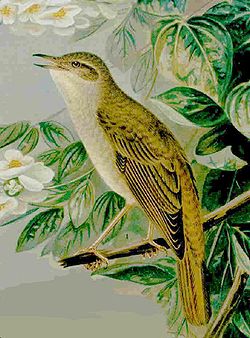| Scene 1: | Against a background of war outside Athens, |
| Scene 2: | Athens—Procne and Philomele, two sisters, "discuss life's charms and the attractions of men." A dead soldier intervenes in the idyllic state of Procne and Philomele. |
| Scene 3: | King Pandion, their father, gives Procne in marriage to Tereus, liberator of Athens. Tereus and Procne leave for Thrace, the homeland of Tereus. |
| Scene 4: | Thrace—Procne has a child, Itys, and fantasises that Itys would one day be king and ruler. |
| Scene 5: | Five years pass; Procne is lonely for Philomele. Procne's companions sense a danger in sending Tereus back to Athens for Philomele, but they do not have the words to express it. |
| Scene 6: | Athens—King Pandion and Tereus discuss Philomele's journey to Thrace against a performance of the tragedy of Hippolytus and Phaedra. During the play, Tereus is struck by Aphrodite and falls in love with Philomele. |
| Scene 7: | Aboard Tereus' Ship—The voyage north with Tereus, his ship captain and followers begins, with Philomele accompanied by Niobe. Philomele plies the captain with questions; she is attracted to him. |
| Scene 8: | Thrace—At home, Procne's companions sense danger, "Your sister is on the sea and Tereus is a young man." Procne dismisses them. |
| Scene 9: | A Remote Shore—Tereus' followers, and in particular two soldiers, question the elongated travel time to Thrace. He evades their enquiries. They sense a darker subtext but choose to ignore it. |
| Scene 10: | Tereus lies, announcing Procne's death to Philomele, who is grief-stricken, demanding to see the body. |
| Scene 11: | Philomele and the captain talk and declare love. Tereus interrupts and kills the captain under the guise of protecting Philomele. |
| Scene 12: | Thrace/A Shore—Both sisters are on stage, juxtaposing their viewpoints. Philomele grieves the death of the captain and commiserates with Niobe. Procne awaits the arrival of Tereus and Philomele with the Thracian women. Tereus succumbs to Aphrodite, symbolically succumbing to lust. |
